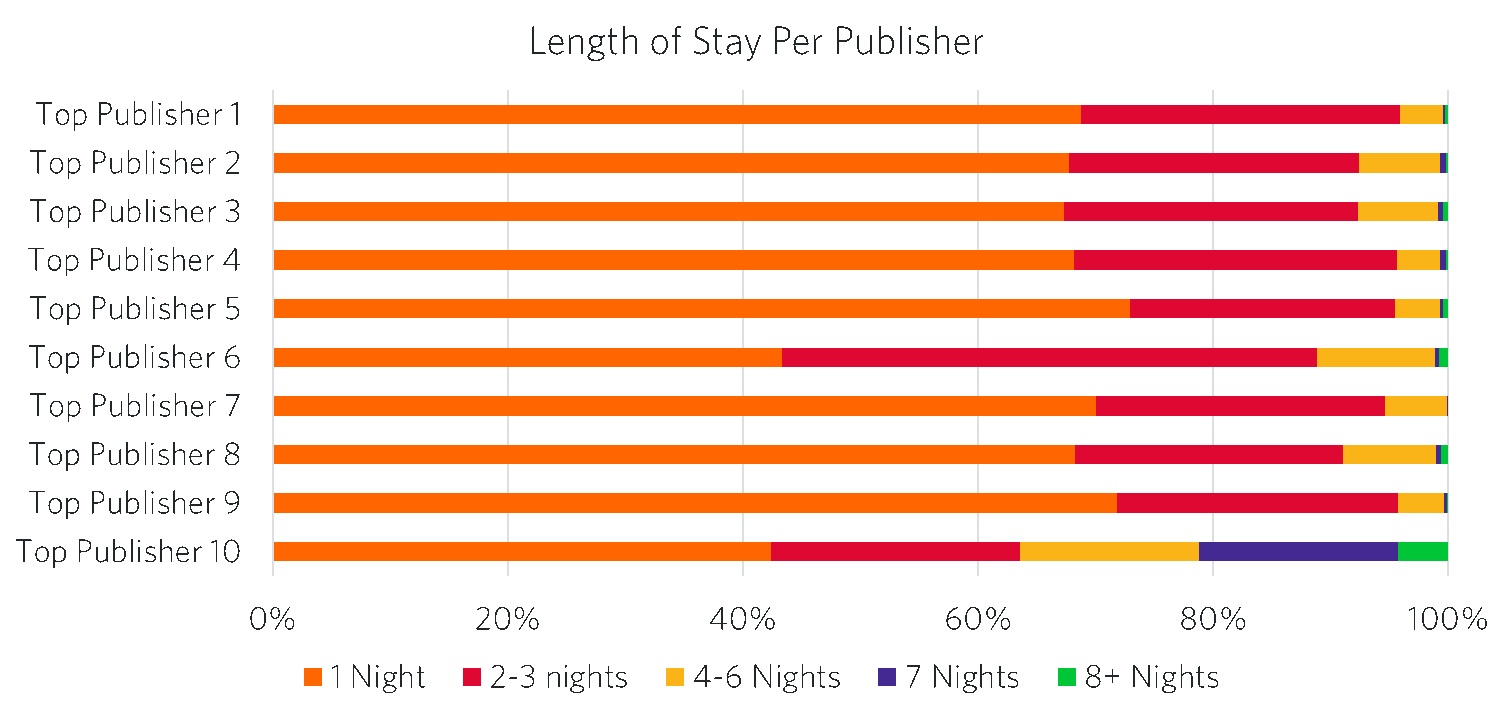In an age of personalisation, it makes sense for an affiliate programme to deliver value, not just sales, and that’s where Awin’s Conversion Analytics come in. Conversion Analytics are a way for an advertiser to give Awin more insight into the quality of purchase that a consumer is making.
This concept is incredibly powerful when aligned with business objectives, which of course vary by sector and by individual advertiser. These business objectives tend to give birth to either specific marketing campaigns or general KPIs. Let’s take the travel sector for example; their typical business KPIs might include:
- Increasing purchase value
- Grow the volume of new customers
- Growing the volume of business customers
These in turn might result in marketing campaigns with a focus on:
- Destinations that are far away
- Luxury holidays
- Newly launched routes/destinations
- Midweek flights
Understanding how marketing campaigns then integrate with the affiliate channel has often been something that requires further thought. The tactics frequently used were:
- Find publishers who target affluent consumers
- Find publishers who focus on a specific destination
- Change the wording on existing publisher sites to reflect the marketing campaign’s message
These are understandable approaches but they are representative of a dated approach, especially in terms of their results. Awin has seen a much greater success with advertisers who pass back custom parameters such as holiday destination, holiday duration, type of customer and number of travellers for each transaction that occurs. These custom parameters open the door to reporting on a per publisher basis that can be used for specific marketing campaigns:

Rather than investing time in recruiting new publishers (that are typically longtail and low volume), reporting of this nature allows you to find publishers that are already successfully pushing the types of sales your business considers valuable. If targeting longer stays for example, you would see from the report above that Publishers 6 and 10 are the best places to invest tenancy spend. Ultimately, personalisation of affiliate programmes is only possible through better data collaboration.
It is proven to be successful though, Awin recently worked with a Telco advertiser who wanted to increase their average contract value for pay monthly phone sales. The advertiser implemented Contract Value as one of their custom parameters which enabled them to see the average contract value per publisher.
Previously their tenancy spend had been focused on their biggest volume drivers but after seeing that some of their midtail publishers had higher contract values, they changed focus and over the course of a six month period, grew their contract value by 10% for the whole affiliate programme without changing their spend.
Extended to publishers themselves, the power of Conversion Analytics becomes absolute. Publishers have always been creative with how they market an advertiser but mostly do so without an understanding of the perceived value of their activity. Publishers would love to evolve their own test and learn campaigns to optimise for quality, but can only do so if they have the data to optimise with.
This concept can be applied to entire publisher types too; an often asked question is how impactful it would be to change the general messaging across all voucher code sites to focus on one core message. Going back to our stay duration example, we could have all voucher code sites promoting holidays that are at least three nights long. The impact of doing so is currently unknown but there’s only really one way to change that.
It’s completely understandable how we ended up in a position where most affiliate programmes focus mostly on quantity rather than quality of sales. The industry always promoted itself as a channel that is risk free, where you only pay for sales and ergo the more sales, the better. The disconnect between senior marketing leaders and those running affiliate programmes became more prevalent as marketing KPIs changed and so did the reason for having an affiliate programme. It’s unfortunate that whilst the marketing KPIs evolved, the data sharing didn’t.
In today’s privacy conscious marketing ecosystem, it may seem a daunting task to share more than you do at the moment and this is something to address head on. The GDPR is primarily concerned with personal data – specifically data that can be used to identify an individual. Knowing that a transaction occurred for 7 nights in Majorca leaving on the 12th December doesn’t give you anything that can be used to identify someone and thus, will be GDPR compliant.
One of the other reasons that Conversion Analytics are not already a default part of every programme is not necessarily knowing how to get started. The simplest way to explore this is to review the data you collect on your confirmation page and compare it with what you currently give to your network. If there’s a big difference then an hour’s commitment from an in house developer gives you an easy way to enhance your current affiliate programme.
Conversion Analytics can challenge your understanding of how affiliate marketing impacts your business, give publishers an opportunity to optimise for value and best of all, welcome in a new dawn of personalised affiliate marketing that focuses on quality over quantity.
This piece forms part of the Complete Affiliate Programme series, find out more here.

